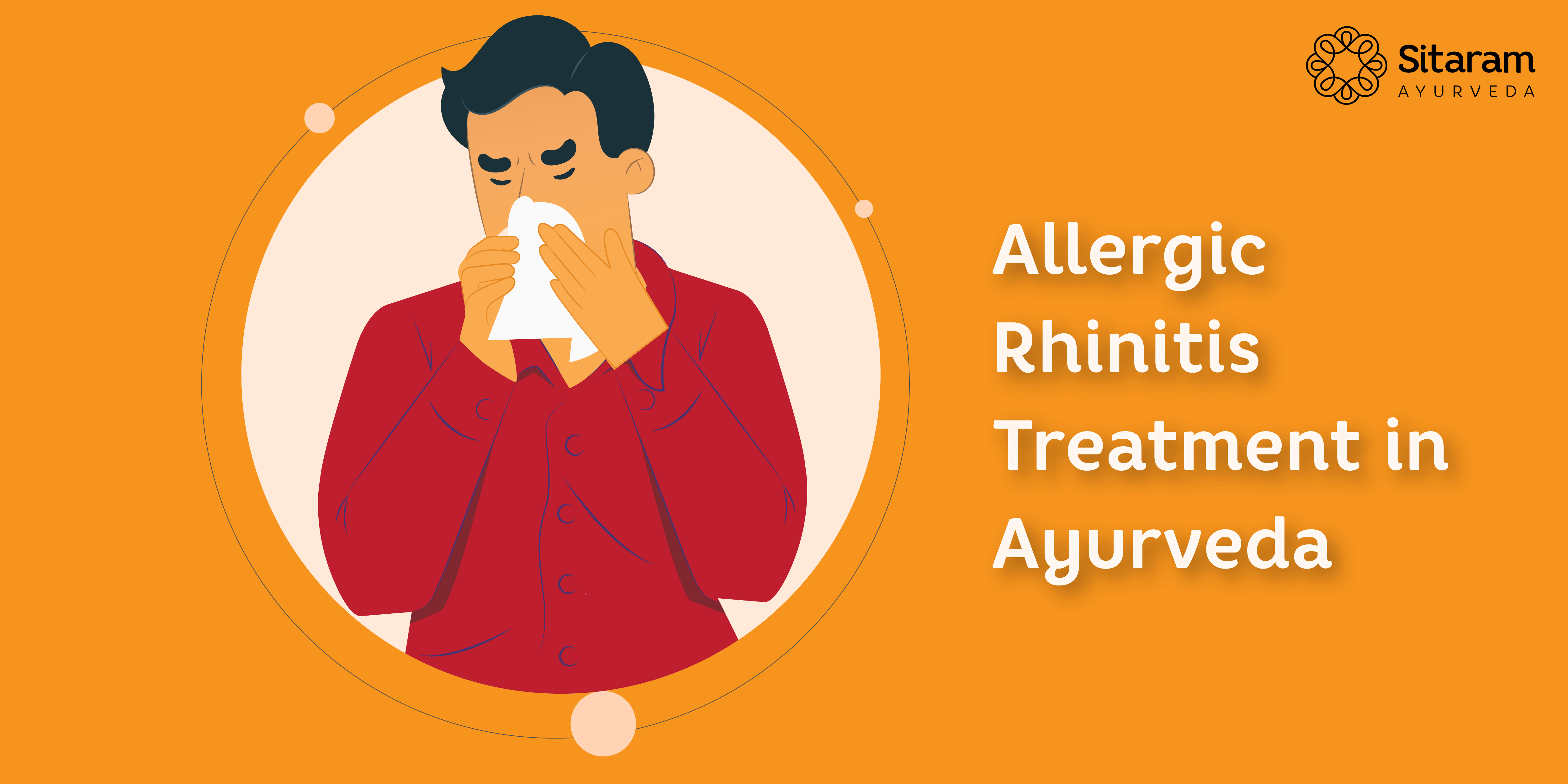Allergic Rhinitis Treatment in Ayurveda

Stuffy swollen nose, itchy watery eyes, sneezing and cough. You are having another bad day. But the issue is that bad days are too often. And especially you can’t stand it when someone cleans old shelves or dust bed sheets. To make it worse, it may ruin the entire spring season. That’s allergic rhinitis, making days bad for 10-30% of the world population. (1) That makes it the most common allergy people are getting.
Ayurvedic treatment for allergic rhinitis, with its wholistic and multi system approach strives to correct and modulate the immune response rather than trying to reduce the allergic reactions when it occurs.
What is allergic rhinitis?
The term rhinitis means inflammation in the nose. Allergic rhinitis is in fact the overreaction of the immune system to one or more specific particles which are usually harmless. The substance which initiates the excess immune reaction is called ‘allergen’. The most common allergen is pollen, especially in western countries. Other allergens include dust, pet hair, mold, cold climate etc. Although the name says ‘rhinitis’ and runny and stuffy nose is one of the main symptoms, allergic rhinitis is almost always associated with other symptoms also. Other symptoms of allergic rhinitis include itchy eyes, swelling around eyes, cough and sometimes eczema, feverish feeling, headaches and fatigue.
What causes allergic rhinitis?
The immune system is always alert to protect us from harmful germs and particles which are not good for us. Allergy happens when immune systems over react to a non harmful or mildly harmful particle. When such a particle comes into contact with our body, an antibody called IgE attaches to it. IgE will initiate the release of a chemical called ‘histamine’. Histamine is the chemical which usually causes changes in small blood capillaries, cell membranes, mucous etc to fight invading germs and particles. The production of histamine in response to allergens causes the symptoms of allergy. Such reactions to allergens are guided by genes. That is, some of us are genetically susceptible to allergies.
What are the types of Allergic Rhinitis?
Allergic rhinitis can happen seasonally and can occur un related to seasons, called perennial allergic rhinitis. Seasonal allergies usually occur during the spring and autumn season and are typically in response to outdoor allergens like pollen. Perennial allergies can occur all year around, or at any time during the year in response to indoor substances, like dust or pet hair.
How Ayurveda views Allergic Rhinitis?
Ayurveda considers allergic reactions as an issue concerned mainly with ‘pitha’ ‘dosha’, ‘ojas’ and ‘agni’.
‘Pitha’ is responsible for all transformations and chemical reactions. In allergic rhinitis, the information and chemical pathways related to the allergen is not correctly regulated.
‘Agni’ is the metabolic fire. Ayurveda believes that all diseases start in the digestive system. Especially chronic allergic conditions have a strong link to the gut. This view is also supported by modern findings related to leaky gut, intestinal permeability and gut microbial flora.
‘Ojas’ is related to the resilience of the body, immunity and resistance against diseases.
Ayurvedic treatment for Allergic Rhinitis:
From the above, you might have understood that ayurvedic treatment for allergic rhinitis includes balancing the ‘pitha’ dosha, ‘agni’ and improving the ‘ojas’.
Ayurvedic medicines for allergic rhinitis acts in the immune system, digestive system and respiratory system. Medicines are chosen according to the specific symptoms you present. An ayurvedic doctor will asses whether you are having more of sneezing or breathing difficulty or itchy eyes or eczema etc, to accurately prescribe medicine best suited for you. In ayurvedic terms, it means analysing your specific ‘dosha’ imbalance.
Medicines commonly include ‘allerkhand powder’, ‘haridra khandam’, ‘indukantham kashayam’, ‘amruthotharam kashayam’ etc.
Before taking ayurvedic treatment for allergic rhinitis, consult a qualified ayurvedic doctor near you to get accurate medication for your specific condition. You may also avail the online consultation from our doctors.
You can also leave a comment below or email us to know more about allergic rhinitis.
References:


 Sign In
Sign In Cart
Cart